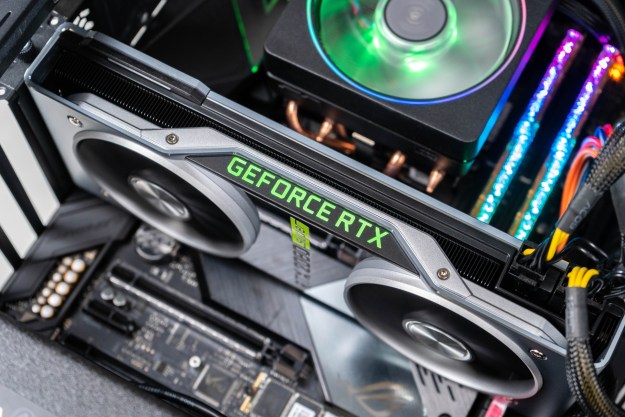The new Titan X will boast a whopping 12GB of GDDR5X memory, which distinguishes the card from the GP100 which used high bandwidth memory, according to a report from PC Per. The confirms that Nvidia is using a new chip with a new memory interface.
The card is set to deliver a memory speed of 10Gbps and a boost clock speed of 1531Mhz. It’s an incredibly powerful piece of kit, and that seems to have been the design brief from the very beginning — its product page on the Nvidia website claims that the company “packed the most raw horsepower we possibly could into this GPU.”
This statement is likely referring to its 3584 CUDA cores running at 1.5GHz, which makes for an increase of 40 percent over the amount used in cards based on the GP104 GPU, while maintaining lower clock speeds. That results in a whopping 11 teraflop peak compute, almost double the last Titan X’s 6.14.
The new Titan X is the absolute pinnacle of performance, and is only a relevant choice to a small group of gamers. It’s much more likely to end up in home rendering, production, and editing rigs – somewhere it can help pay for itself, because at $1,200, the Titan X doesn’t come cheap. It’s also a $200 increase over the Maxwell 2-based Titan that launched in 2015.
If the refreshed Titan X sounds appealing, you won’t have to wait too long to get your hands on the hardware. The card is set to go on sale on August 2, and will initially be exclusive to Nvidia’s online store.
Editors' Recommendations
- Acer’s new gaming laptop bring Nvidia RTX 40-series GPUs under $1,000
- New report claims that Nvidia may leave AMD in the dust
- Nvidia RTX 3080 vs. Microsoft Xbox Series X vs. Sony PlayStation 5
- Xbox Series X console will launch November 10 for $499
- Xbox Series X and Series S could launch on November 10 for $299 and $499



